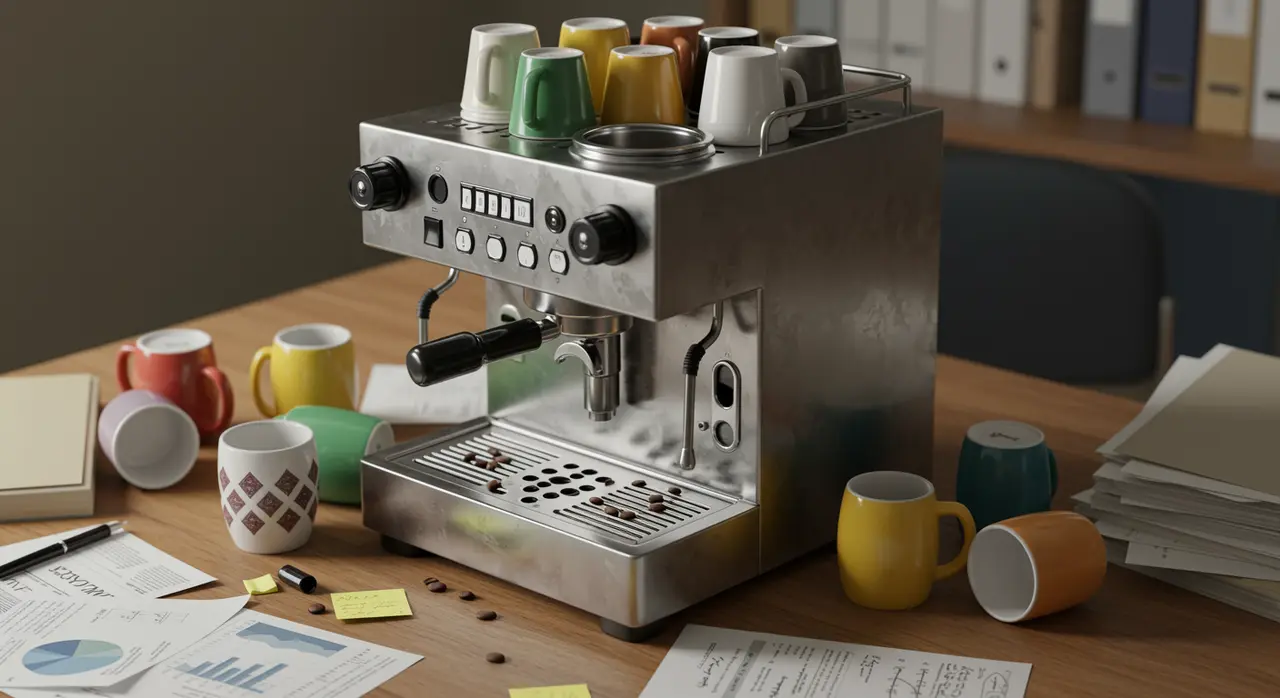Swedish Study Links Office Coffee Brewing to Cholesterol Risks
79 views
The Hidden Perils of Office Coffee: A Brewing Health Concern
For millions, the hum of an office coffee machine is as essential to the workday as the clatter of keyboards or the shuffle of paperwork. Yet, a Swedish study has stirred the pot on workplace coffee, revealing that the seemingly innocuous cup of joe may harbor compounds linked to heart health risks. Researchers found that office coffee, often brewed using metal filters, contains elevated levels of cafestol and kahweol—two natural compounds associated with increased LDL cholesterol, the so-called "bad cholesterol."
The study’s findings cast a shadow over the communal coffee pot, a symbol of workplace camaraderie. Metal filters, commonly used in office coffee machines, are less effective at trapping these cholesterol-raising compounds compared to paper filters, which provide a more robust barrier. The brewing method, it seems, matters as much as the quality of the beans. While French press and percolated coffee demonstrated lower levels of these compounds, espresso proved to be a wildcard, with its levels varying widely depending on preparation techniques.

This revelation comes at a time when coffee is often heralded as a superfood of sorts, celebrated for its antioxidant properties and potential to reduce the risk of certain diseases. However, the study adds nuance to this narrative, reminding us that not all coffee is created equal. Beyond the cholesterol-linked compounds, excessive caffeine consumption—defined as more than 400 milligrams per day, roughly equivalent to four cups of coffee—can exacerbate anxiety, elevate blood pressure, and increase the risk of cardiovascular disease. The health benefits of coffee, it seems, are as much about moderation as they are about method.
The implications of these findings extend beyond the office kitchen. Coffee culture, with its artisanal brews and third-wave roasteries, has long been a point of pride for many. Yet, the study challenges us to rethink the way we brew and consume coffee, particularly in environments where convenience often trumps health considerations. The metal filters that dominate workplace coffee machines may be cost-effective and durable, but their inability to filter out cafestol and kahweol raises questions about their suitability for daily use. Paper filters, though less eco-friendly, may offer a safer alternative for those concerned about cholesterol levels.
The study also invites a broader conversation about the role of shared amenities in shaping workplace health. From vending machines stocked with sugary snacks to fluorescent lighting that strains the eyes, the office environment often prioritizes efficiency over well-being. The humble coffee machine, it turns out, is no exception. As remote work continues to blur the boundaries between home and office, employees may find themselves taking a closer look at their coffee habits, both at work and at home.
For employers, the findings present an opportunity to reconsider the health implications of workplace perks. Upgrading to machines that use paper filters or educating employees about the potential risks of certain brewing methods could be small but meaningful steps toward fostering a healthier work environment. After all, the coffee break is more than just a pause in the workday; it’s a ritual that fuels creativity, collaboration, and connection.
Yet, the study’s findings should not be cause for alarm, but rather for informed decision-making. Coffee remains a beloved staple of daily life, and its benefits—when consumed in moderation—far outweigh its risks for most people. The key lies in balancing enjoyment with awareness, ensuring that the choices we make align with our individual health needs.
In the end, the Swedish study serves as a timely reminder that even the simplest pleasures can have complex effects on our well-being. As we sip our morning brew, perhaps it’s worth considering not just what’s in the cup, but how it got there. For coffee lovers, this is not a call to abandon the drink that powers their days, but an invitation to savor it more thoughtfully. After all, a better brew might just lead to a healthier you.